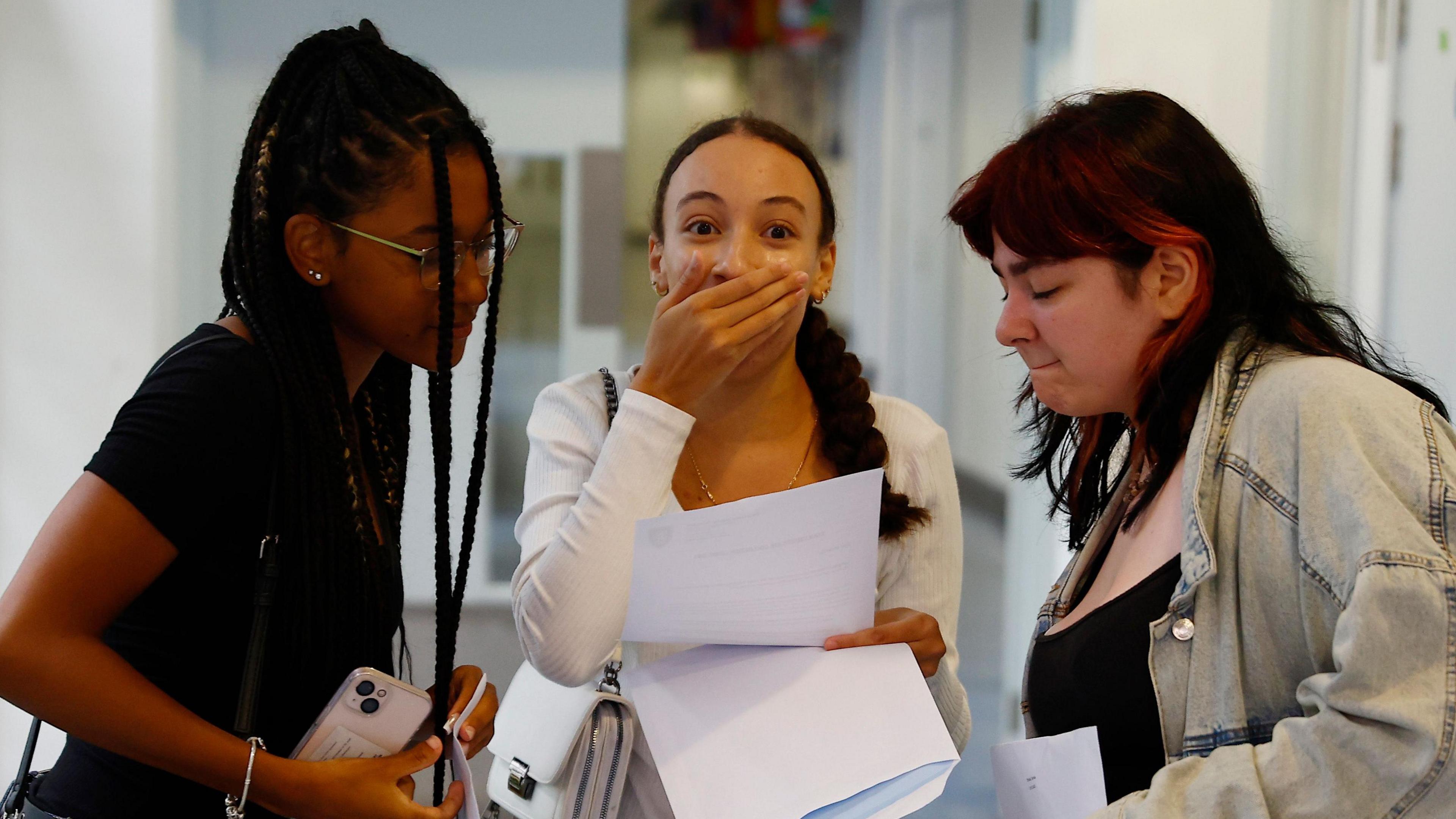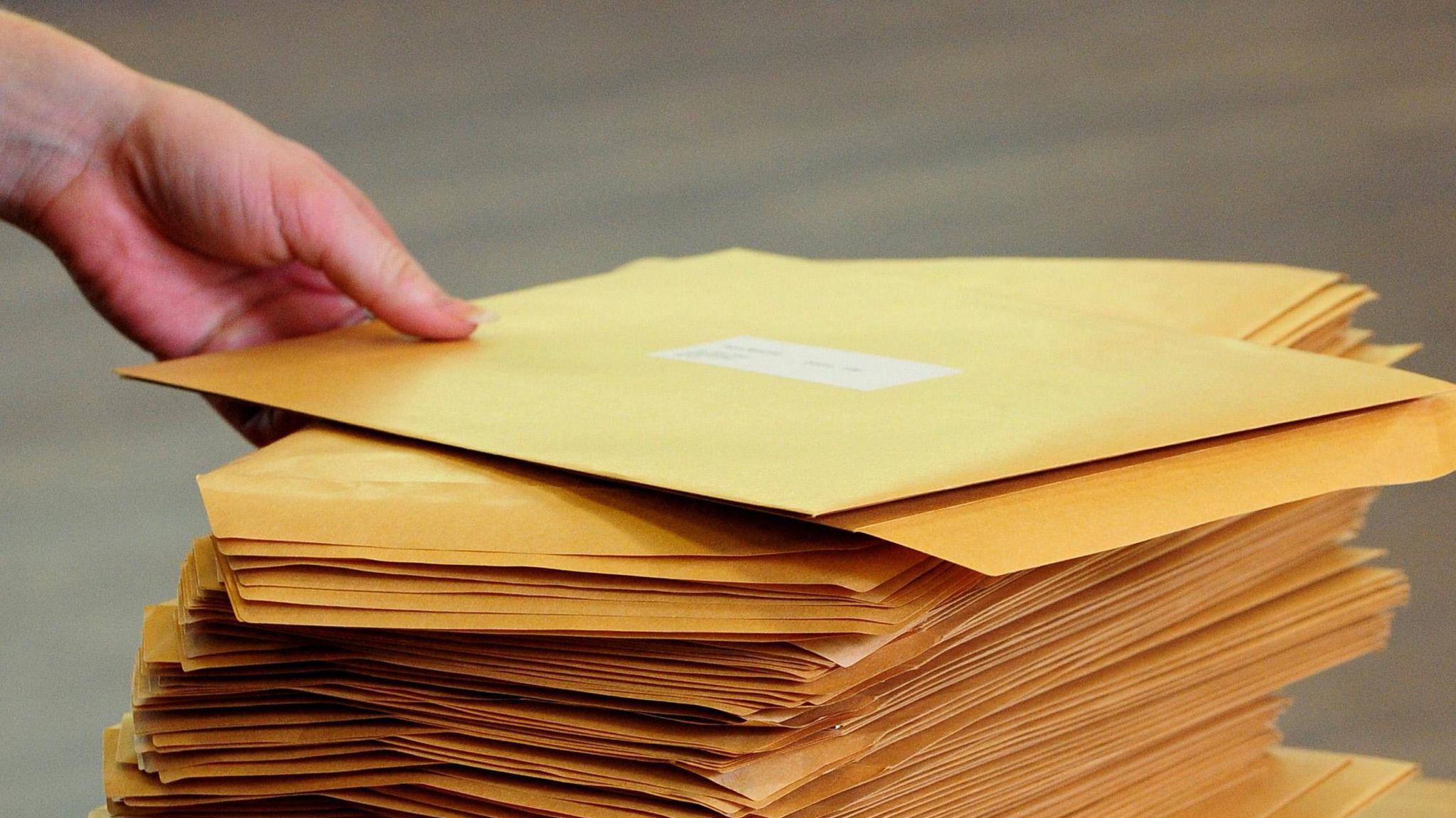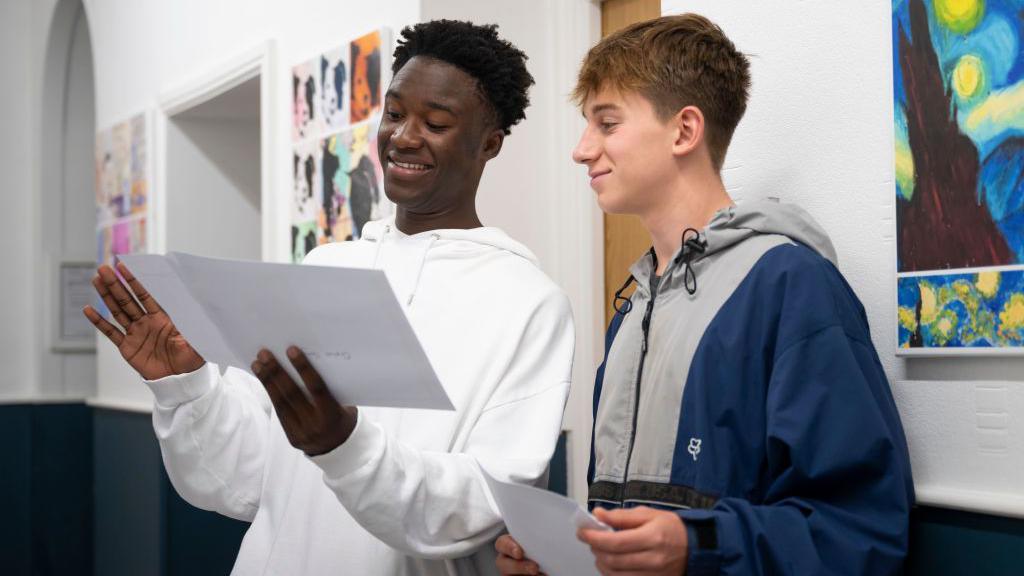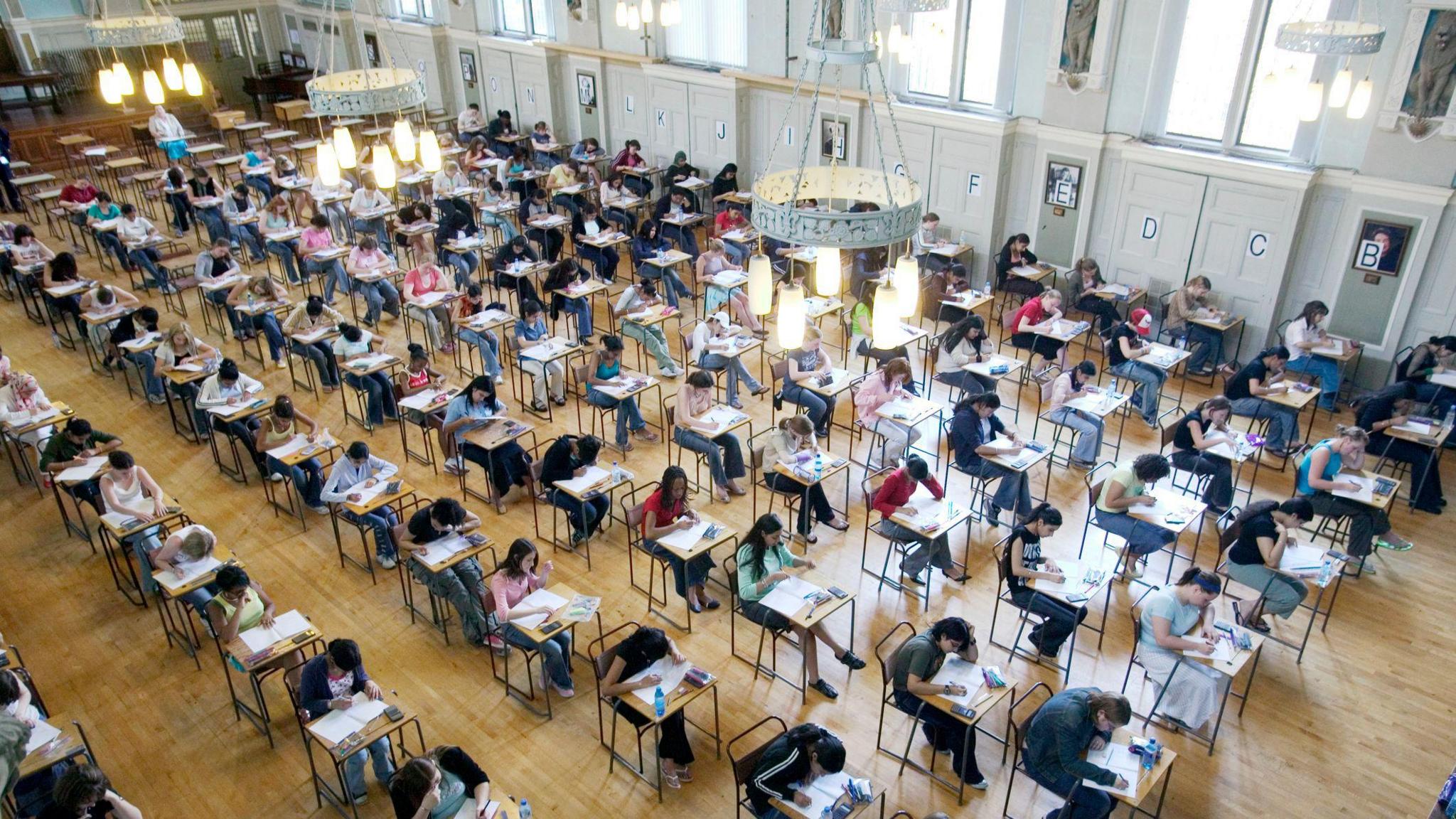GCSE results for children who had school disrupted by the pandemic

It's a big day for many older teenagers across the UK
- Published
Hundreds of thousands secondary pupils in England, Wales and Northern Ireland have received their GCSE results this morning.
GCSEs are qualifications that students can earn between the ages of 14 and 16, with most of the exams sat in the final year of secondary school.
The results show a slight fall in GCSE passes, but this is part of a pattern of grades that have returned to similar levels that were seen before the coronavirus pandemic.
Speaking to the BBC, Catherine McKinnell, the government's Minister for School Standards, said that students have “overcome incredible challenges - these are the young people that were in Year 7 when we went into the pandemic".
More school stories:
Should tests be on paper or on screens?
- Published18 October 2023
British Sign Language GCSE offered from 2025
- Published21 December 2023
A-level results 2024: Grades rise again for students
- Published15 August 2024
What are the 2024 GCSE results?
This year, the percentage of GCSEs marked at grade 4 and above (a standard pass) has fallen across each nation.
In 2020, GCSE exams were cancelled due to the Covid-19 pandemic, and so results were based on teacher assessments - leading to grades rising in both 2020 and 2021.
Measures and restrictions were introduced in the UK during the coronavirus pandemic between March 2020 and December 2021. For many children, that meant schools were shut for periods of time and learning had to take place remotely at home.
Children who began secondary school in 2019, and had their learning disrupted during the pandemic, will have taken this year's GCSE exams.
Catherine McKinnell told the BBC that Covid-19 had disrupted school life for these GCSE students, and that "their entire secondary education has been shaped by that experience”.
She said that they have "worked incredibly hard, and we’re really positive and hopeful for the results today and what it brings next for young people”.

GCSE results: 'a sense of normality'
GCSE results are expected to be "roughly" in line with last year's results, when they fell back towards levels seen before the coronavirus pandemic.
A drop in grades had been expected after teacher assessments temporarily replaced the exams, and Catherine McKinnell told the BBC that is good "in a sense" because it shows testing has moved back to "a sense of normality".

Results have been available to pick up in schools this morning
Who is receiving exam results today?
This year's GCSE results were released to students in person at 8am on Thursday 22 August.
Pupils in Scotland go through different qualifications called Nationals, and they already received their results on Tuesday 6 August.
But some students who attend private schools in Scotland will also be expecting their GCSE results today.
It's also results day for those who have taken level 1/level 2 vocational and technical qualifications, called VTQs.
VTQs are qualifications for specialised skills needed for certain jobs and careers.

Many 14 and 16 year-olds will be up bright and early on Thursday
What does GCSE mean?
GCSE stands for General Certificate of Secondary Education, a qualification that's been in place since 1986 - although it's changed a fair bit since then.
In 2017, some subjects began to be graded in numbers 9-1 instead of letters A*-U, and this was introduced for all subjects in 2020.
In England and Wales, everyone sitting GCSEs has to take Maths, English and Science, with study of Welsh as a first or second language needed for students in Wales.
In Northern Ireland, pupils have to take Maths and English Language.

Exams can be stressful, but there's always options to try again if you need to
There's also lots of optional subjects you can study at GCSE, including geography, drama, PE and media studies.
This year, there was a just under 10% rise in the number of students taking business studies, and nearly 20% more students taking statistics, than in 2023.
And there are new subjects being added to the list, for example you can take a GCSE in British Sign Language from 2025.
And Wales will also offer skateboarding as part of the PE GCSE in 2026.
How important are GCSEs?
Advice if feelings of stress and worry become too much
GCSEs are a key part of school, but they can always be taken again as resits next summer.
Some jobs will ask for certain GCSE grades as a requirement when applying.
A grade 4 is needed at English and Maths, otherwise students will have to resit the subjects next year.
